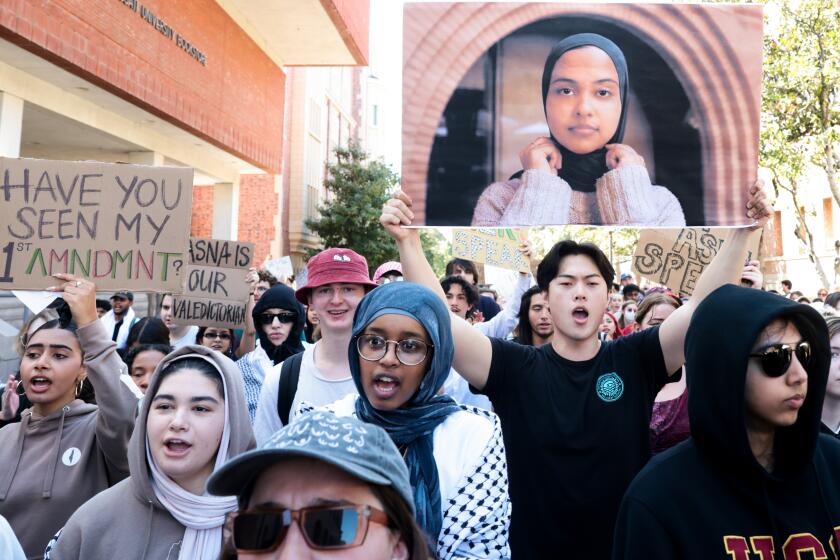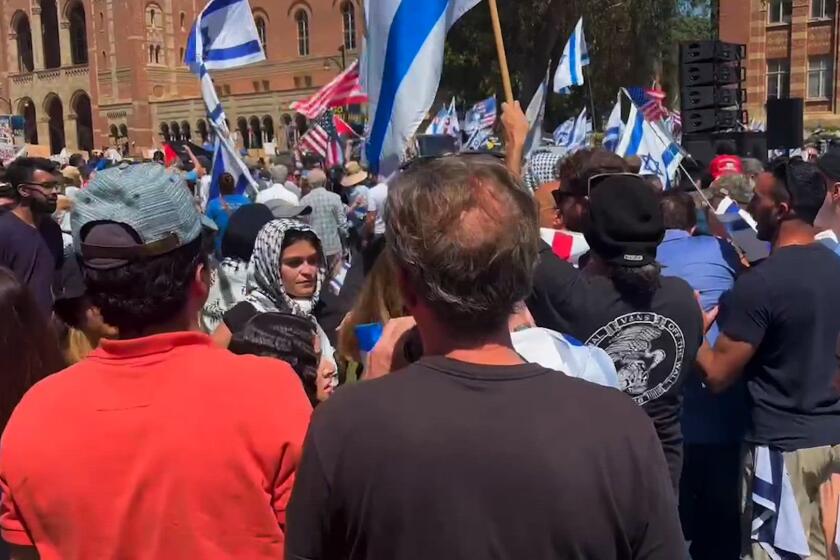UCLA, Southwestern law students to write ‘real world’ amicus briefs
Two Los Angeles law schools are launching programs designed to give their students real-world legal experience by writing briefs on behalf of nonprofit groups or other causes that professors deem worthy.
Unlike better-known programs in which law students take on longer-term pro bono work that focuses on single cases, students at UCLA and Southwestern law schools will write amicus briefs, often known as “friend of the court” documents.
“I have not heard of law schools doing anything quite like this,” said Eugene Volokh, a UCLA law professor who will head the university’s First Amendment Amicus Brief Clinic this fall.
Law schools nationwide have come under fire for graduating too many students who are saddled with debt and unable to find jobs. Michael Epstein, the Southwestern law professor heading the program, said it could make participants more marketable.
“Lots of students do moot court, but this isn’t moot,” he said. “This is the real world.”
Volokh agreed, saying students would get valuable experience.
“For quite a while, law schools have been thinking about how they can teach their students other skills,” Volokh said.
Amicus briefs are filed on behalf of one side of a lawsuit by a third party. They are intended to educate the court about an aspect of the law that might not be well known or to raise awareness about an issue in the case. Judges, often those in appeals courts, consider the documents as they make their decisions.
The students will research and write the papers, but attorneys will sign them and students will be acknowledged in the text.
Students at both schools will receive academic credit. Southwestern’s participants will receive letter grades and UCLA students will get pass or fail marks.
Professors at both schools have begun looking for potential students and cases. UCLA students will focus on 1st Amendment work, and the Southwestern project will consider other parts of the law.
“The ideal case is one that will serve the public interest,” Epstein said.
Volokh said he believes writing amicus briefs will fit better into an academic schedule because the papers have deadlines and are often narrowly focused, making it easier to fit them into one semester.
When Epstein was in law school, he spent one summer interning at the Media Access Project in Washington, D.C., and wrote an amicus brief for a telecommunications case that went before the U.S. Supreme Court.
Epstein wrote most of the nearly 60-page document under the supervision of an attorney and received only a one-line credit. Still, he said, the experience was invaluable.
“It helped me professionally in an intangible way. It showed I had what it took to tackle an issue and to advocate an issue that needed to be addressed,” Epstein said.
Students in both programs will work closely with professors or working attorneys. “It’s going to be a one-on-one experience that should be very intense,” Epstein said.
Volokh said he was looking for about nine students and Epstein had even fewer spots.
“This isn’t for the average student,” Epstein said. “The criteria is not only academic excellence and first-rate writing skills. I’m also looking for demonstrable commitment to public interest.”
One of the best known pro bono programs, the Innocence Project, is affiliated with the Cardozo School of Law at Yeshiva University in New York, and students there work on criminal cases. Many other law schools have courses or clinics in which students research and sometimes even argue cases.
jason.song@latimes.com
More to Read
Start your day right
Sign up for Essential California for news, features and recommendations from the L.A. Times and beyond in your inbox six days a week.
You may occasionally receive promotional content from the Los Angeles Times.







